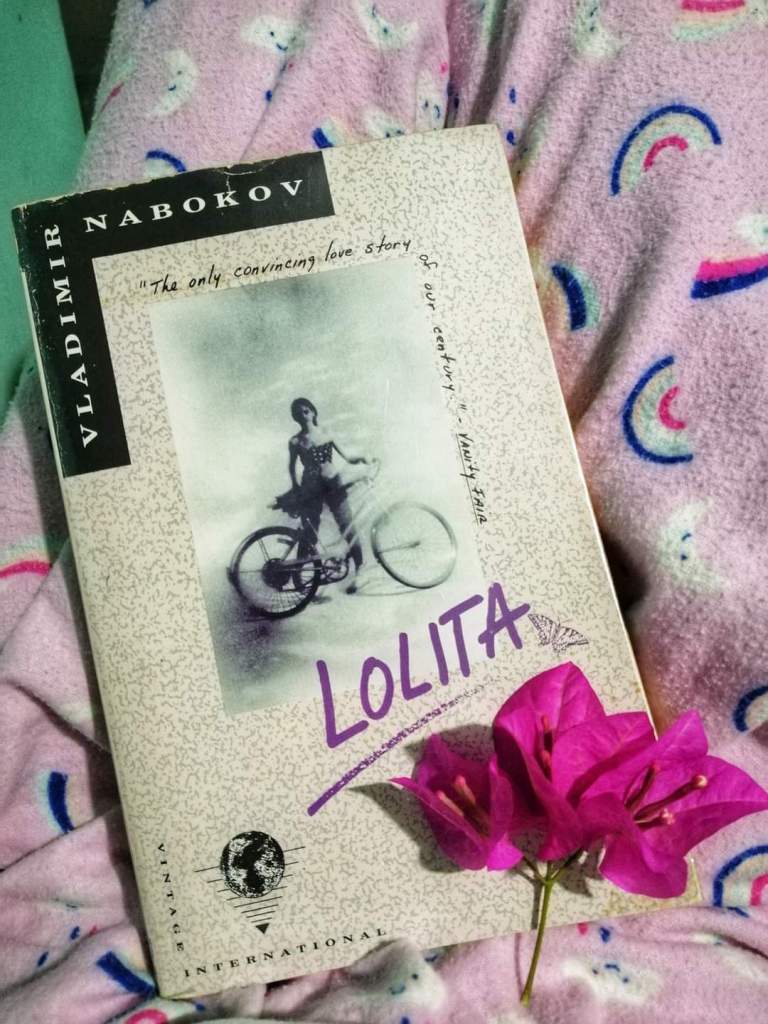
Genre: Fiction
Copy: Paperback
Rating: 🌕🌕🌕🌖
Short Synopsis: Humbert Humbert — scholar, aesthete and romantic — has fallen completely and utterly in love with Lolita Haze, his landlady’s gum-snapping, silky skinned twelve-year-old daughter. Reluctantly agreeing to marry Mrs Haze just to be close to Lolita, Humbert suffers greatly in the pursuit of romance; but when Lo herself starts looking for attention elsewhere, he will carry her off on a desperate cross-country misadventure, all in the name of Love. Hilarious, flamboyant, heart-breaking and full of ingenious word play, Lolita is an immaculate, unforgettable masterpiece of obsession, delusion and lust.
What I liked:
1. The plot. The ingenious way Nabokov toys with the reader’s mind. You get a self-confessed madman — a scheming pedophile who has a taste for young girls. And not just any other younglings at that. Humbert Humbert did not find Lolita sexually attractive because of her beauty and wit (which are almost non-existent), but because she is a nymphet. An ideal combination of childishness and preadolescence.
As Humbert presents the story of his affair with Lolita in first person, this is where Nabokov’s brilliance as a writer shows. Humbert comes across as an intellectual and romantic, detached and fixated. He is both ashamed and proud of the steps he takes to gratify his passion (or obsession). The moral and emotional conflicts that Humbert goes through are so human that he could trick you into thinking that, perhaps, what he has done is excusable. While I personally was wary of Humbert most of the time, there was one instant that I had to rethink ─ is this really love in a very weird form? But then, when you see through his manipulation, you get pentapod monster (his own words) not a man.
2. No pornographic sex. I know Lolita has been frequently described as an erotica but some people tend to overlook its beautiful prose. Nabokov writes about sex in the language of metaphors and figures of speech. While contemporary novels are filled with explicit descriptions of sexual acts, Lolita introduces a one-of-a-kind orgasm through Humbert.
“I entered a plane of being where nothing mattered, save the infusion of joy brewed within my body. What had begun as a delicious distension of my innermost roots became a glowing tingle which now had reached that state of absolute security, confidence and reliance not found elsewhere in conscious life.”
3. It gives you glimpse of a predator’s mind. If we look at the sexualization of women then and now, not much has changed. Lolita shows a clear picture of the schemes that are often used by abusers. When those accused of sexual crime defend themselves, they often say “she wanted it” or “she started it.” They consciously or unconsciously misinterpret a laughter, soft voice or tensed hands as gestures of consent.
Reading the book is a tough journey (for me especially as an ISFP) but a good one. It’s the kind of read where I had to constantly remind myself not to draw hasty conclusions because of my principles, politics, personal reservations and emotions. I had to look beyond the romanticism and be critical at how the characters are portrayed. At how pedophilia is being normalized. At how women are being objectified.
What I didn’t like: Nabokov did a splendid job. Too good that his work still reflects the plight women continue to face up to this day. There are still many who romanticize Humbert’s depravity and many who blame Lolita for being naïve. The world is still filled with enablers and complicit to the crime.
Favorite quotes:
“Human life is but a series of footnotes to a vast obscure unfinished masterpiece”
“We live not only in a world of thoughts, but also in a world of things. Words without experience are meaningless.”
“We loved each other with a premature love, marked by a fierceness that so often destroys adult lives.”
“Life is just one small piece of light between two eternal darknesses.”
“Lolita, light of my life, fire of my loins. My sin, my soul.”
“I shall be dumped where the weed decays, And the rest is rust and stardust”
“We all have such fateful objects — it may be a recurrent landscape in one case, a number in another — carefully chosen by the gods to attract events of specific significance for us: here shall John always stumble; there shall Jane’s heart always break.”
Final Thoughts: If age is just a number, what makes Humbert and Lolita’s relationship seem wrong? Would you see through lust if it was clothed in love? How would you draw the line between the two? There were a lot of irony and moral conflict to digest in this book. Kudos to Nabokov (again) for a thought-provoking read. But like what I said when I finished it last May, I don’t agree with the featured comment on the cover from Vanity Fair. It was far from being convincing or a love story to begin with. No, no. It was calculated rape.
Have you read Lolita? Did you like it as much as I did?
Go on... I'd love to hear your thoughts! ;)